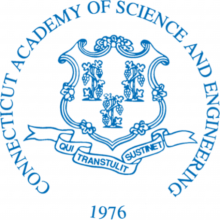
Combining his groundbreaking science with an entrepreneurial spirit, Crews and his colleague Raymond Deshaies co-founded Proteolix in 2003. Proteolix developed a therapeutic treatment approved by the FDA in 2012 for relapsed multiple myeloma. Drug development is a slow and arduous process, and few technological advances are truly transformative in the field. However, for Crews, this was just one step in his journey.
Since 2001, he has developed a new technology, known as PROTACs, or Proteolysis Targeting Chimeras. This innovative and potentially disruptive approach for inhibiting the function of disease-causing proteins is being commercialized in the biotechnology, New Haven-based, oncology-focused company Arvinas that he founded in 2013. The company has created more than 300 new jobs in New Haven with a $3.5B market cap, two drug candidates in clinical trials, and several partnerships with large pharmaceutical companies. Arvinas focuses on drugs to treat cancer, neurodegeneration, and other diseases [now in clinical trials for breast and prostate cancer].
Crews earned a BA in Chemistry from the University of Virginia, completed a research fellowship at the University of Tübingen (Germany), and received his PhD in biochemistry from Harvard University. His awards and honors are numerous, including the 2013 CURE Entrepreneur of the Year Award, 2014 Ehrlich Award for Medicinal Chemistry, 2015 Yale Cancer Center Translational Research Prize, a NIH R35 Outstanding Investigator Award (2015), elected a CASE Member (2015), the American Association for Cancer Research Award for Chemistry in Cancer Research (2017), Khorana Prize from the Royal Society of Chemistry (2018), Pierre Fabre Award for Therapeutic Innovation (2018), the Pharmacia-ASPET Award for Experimental Therapeutics (2019), the Heinrich Wieland Prize (2020) and the Scheele Prize (2021).

